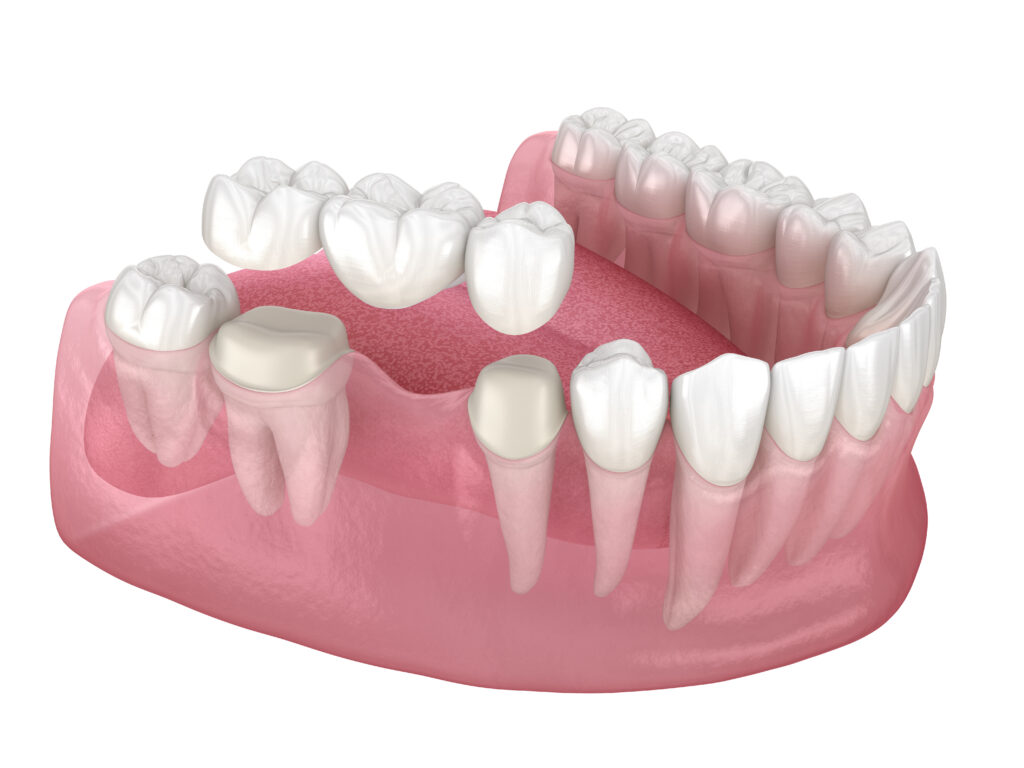
Dental bridges are one of the easiest ways to replace several teeth that are side-by-side. They’re capable of offering patients incredible beauty and realism, so much so that it’s often easy to forget that what you have aren’t your real teeth.
That being said, you probably want your new teeth to last as long as possible. However, nothing last forever, and even your dental bridge has a finite lifespan. If you’re curious, here’s what you should know about how long your new teeth are likely to last.
How Long Do Dental Bridges Last?
Depending on several factors, the lifespan of your dental bridge can vary significantly. While most will last somewhere between five and fifteen years, the exact amount of time you can expect to keep yours can’t be accounted for without knowing more about the particulars of your situation.
What Can Affect the Lifespan of your Dental Bridges?
For one, dental bridges can be made from a variety of materials, some of which last longer than others. They’re sometimes made from metal, which lacks in aesthetics but tends to last longer than those made from tooth-colored materials. There’s also the matter of where the dental bridges are located in the mouth; bridges that replace molars are going to be under greater pressure, and will therefore usually fail sooner than those that replace the front teeth.
You can also influence how long your dental bridges last by adhering to a thorough dental hygiene routine. Tooth decay and gum disease can cause serious problems with your restoration, so you can greatly extend their lifespan by keeping them at bay.
How Can I Extend My Dental Bridges’ Lifespan?
The main things you can to do make your restoration last longer have to do with dental hygiene. The better you take care of your dental bridge, the longer you can expect it to last. Here are a few guidelines that can help you.
- Maintain Good Oral Hygiene: Brush your teeth at least twice a day and floss daily to remove plaque and prevent decay around the bridge.
- Do Not Use Your Teeth as Tools: Avoid using your teeth to open packages or bite on non-food items.
- Visit Your Dentist Regularly: Regular check-ups can help ensure the bridge and surrounding teeth remain in good condition.
- Use a Night Guard if You Grind Your Teeth: Bruxism can damage the bridge, so wearing a night guard can help protect it.
- Avoid Tobacco Products: Smoking and other tobacco use can increase the risk of gum disease and affect the longevity of your bridge.
About Our Practice
At Washington Dental Associates, we truly believe that dentistry is about people. We strive to make our restorations fit our patients perfectly, adapting them to ensure that they’re everything that you could ever dream of. If you want a new set of teeth that combines beauty, durability, and incredible realism, we’re proud to offer it to you.
If you have any questions about dental bridges, we can be reached at our website or by phone at (201) 453-4863.

